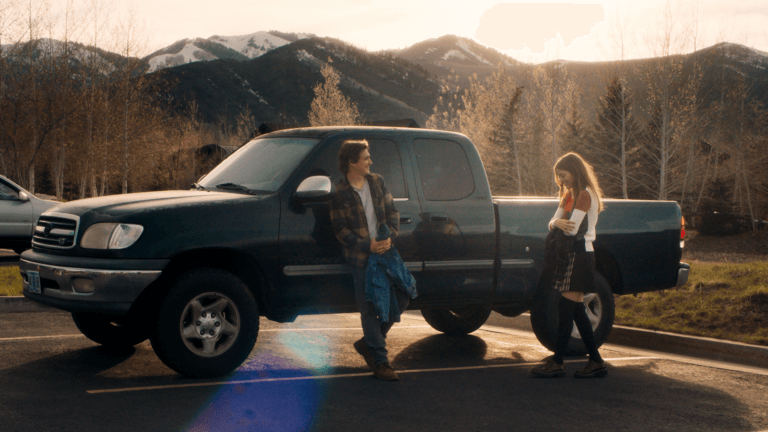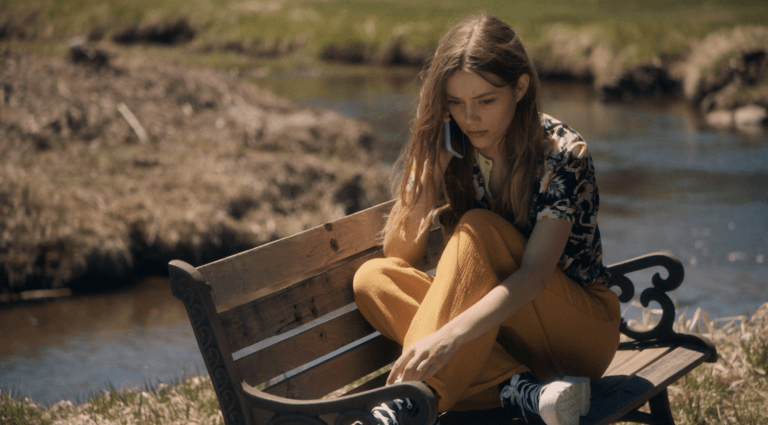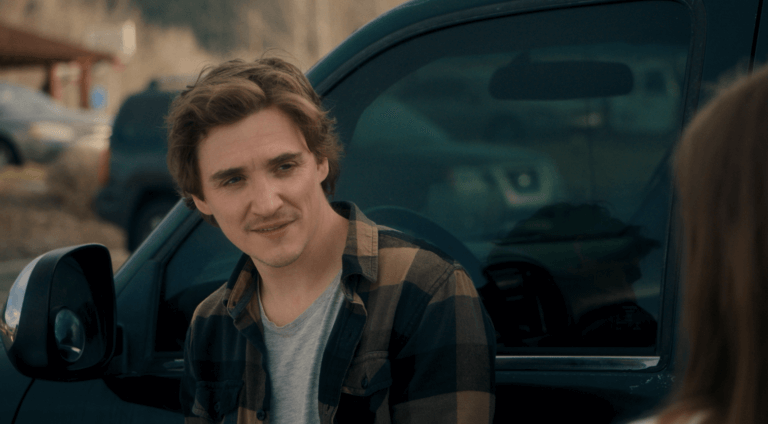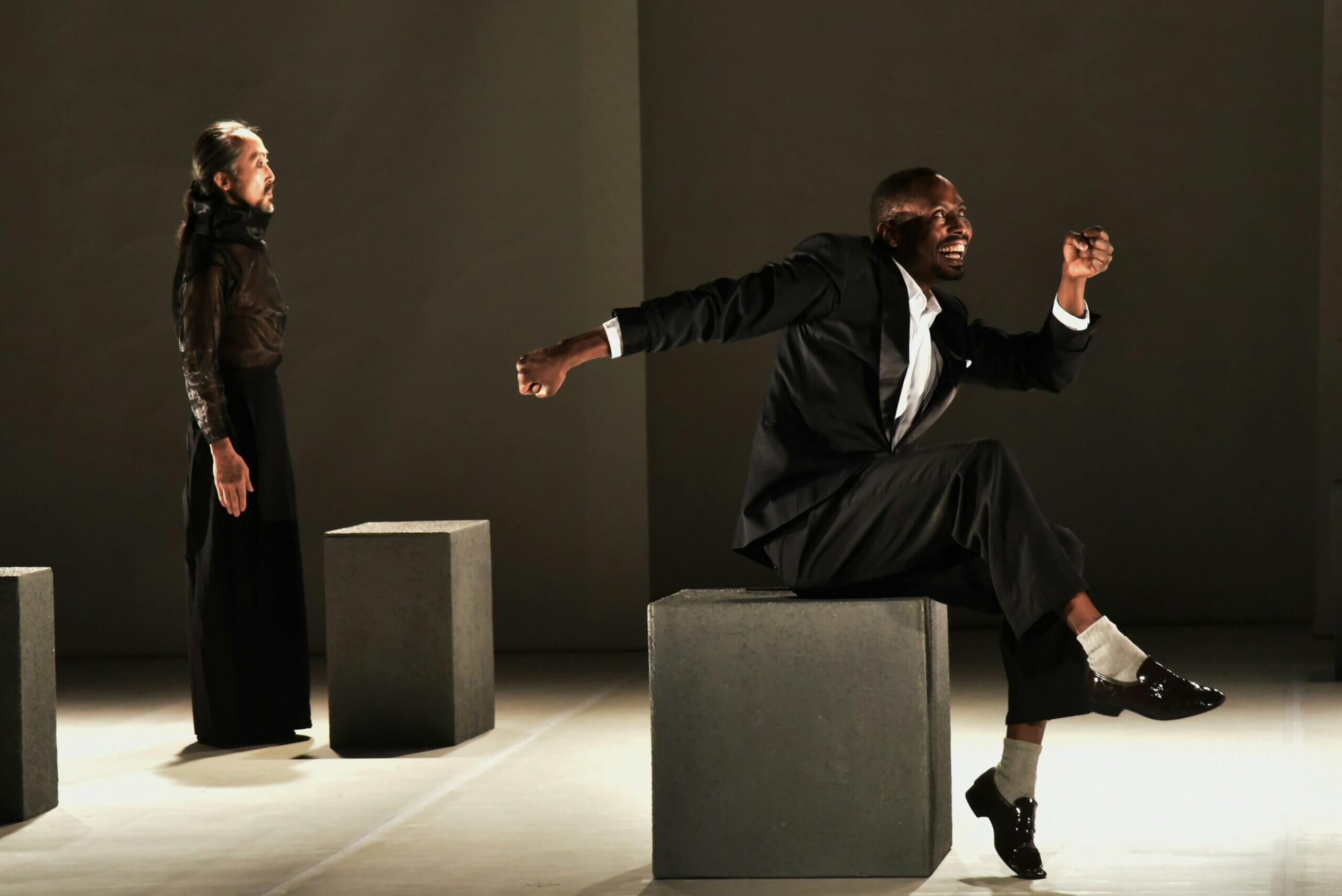Actor/Filmmaker Amy Redford Talks Casting Actors With Famous Last Names in ‘What Comes Around’
After making her feature directorial debut with The Guitar in 2008, actor/filmmaker Amy Redford continued to work on both sides of the camera, adding producing and writing to her list of accomplishments. This second-generation artist (her dad is Oscar-winning legend Robert Redford) continued to hone her directing skills by working on short films, music videos, and tv shows before completing her follow-up feature film, the thriller What Comes Around.
The film – currently in theaters and on streaming platforms – is about a teenage girl (Grace Van Dien) who befriends an online stranger (Kyle Gallner). When he shows up to visit her, the girl’s mother (Summer Phoenix) tries to dissuade the romance, only to have her secret past come into the present.
Redford spoke to Casting Networks about casting the film with actors that have famous last names, what it’s like to audition actors given her own career in front of the camera, and that whole ‘nepo baby’ conversation that’s dominated 2023 conversations.
You have a cast with some famous last names – including Grace Van Dien, son of actors Casper Van Dien and Carrie Mitchum; Summer Phoenix, sister of Joaquin Phoenix; and Indiana Affleck, Summer’s son with Casey Affleck. How did these names come together in your film?
I was blessed to have a wonderful casting director named Eyde Blasko. When we endeavored to make this film, I was equally blessed with a financier who wanted to serve the story and not an antiquated model of casting, which would mean that I’d have to arbitrarily cast based on value systems I don’t really understand. Bobby Bakowski, my director of photography, came on the project first. He was good friends with Summer Phoenix. He read the script, and Summer had been wanting to get back into the (acting) saddle again so he gave it to her. We embarked on having conversations. Her lived experience was something I felt was beneficial to the part. And I just adored her as a human being.
 Grace Van Dien as “Anna” and Kyle Gallner as “Eric” in Amy Redford’s WHAT COMES AROUND. Courtesy of IFC Films. An IFC Films release.
Grace Van Dien as “Anna” and Kyle Gallner as “Eric” in Amy Redford’s WHAT COMES AROUND. Courtesy of IFC Films. An IFC Films release.What do you mean by lived experience?
Her generosity in acknowledging that we are all fallible human beings, and I am a fallible human being as a mom and somebody who’s formerly young. I’ve been a fan of Summer’s for a long time, and I watched her work and her willingness to investigate things that are not convenient. Part of the storyteller’s job is to reflect our fallibility and say, what do we do about it? The fact that she was willing to have that conversation was super important. She also inherently carries a kind of strength that I thought was necessary. How she exhibits her femininity was also something I found completely compelling. All those things together were important.
With your background as an actor, did you ever consider playing that part yourself?
No. But, (the film’s screenwriter) Scott Organ and I decided we would make this movie come hell or high water, whether it meant he and I acting in it with finger puppets and iPhones or making it a proper film. Scott also comes from an acting background, which gives us both a love of actors.
Tell me about that love for actors.
What they do is often underestimated. They are the shaman of our society and often will be more generous than people give them credit for. You have to understand how to create conditions where they can be that creative. My true north as a director is to allow actors to express themselves to the fullest of their capacity.
 Grace Van Dien as “Anna” in Amy Redford’s WHAT COMES AROUND. An IFC Films release.
Grace Van Dien as “Anna” in Amy Redford’s WHAT COMES AROUND. An IFC Films release.Were the auditions for your film over Zoom?
Yes. We were in the throes of Covid. It was interesting because, thematically, we were dealing with digital reality, so we decided to explore some of that through the casting process. Like how much is in the shadows and how much is in the light. We had Kyle reading with six different actors at the time and trying to mix and match, so we kind of embraced it. They had to mix and match over Zoom, so I had to watch the chemistry reads happen in front of a screen.
How was that?
I was worried I wouldn’t be able to see energetically what was happening between these two human beings, but we have become so much more accessible on camera (due to social media). It is so much of our existence these days. I learned much more than I thought I would. Then I was even more gratified when they showed up in person and were all amazing.
As someone with an acting background who is now on the other side of the audition table, how are you with actors when they read for you?
I was never very good at auditioning (laughs). I want to have people – even those that don’t get the part – leave feeling like they did their best work. It’s important for sustainability to give that feeling to people who have offered themselves to you for the day, for the hour, for 15 minutes. When actors feel a sense of safety, they can be more courageous as creatives.
The environment I try to create around them is one where they feel like they’re being held so they can play. That also means behavior on set, how we interact, and talk about character. How I talk to them and give them notes is about how I can catalyze the best possible scenario. Much of that comes from having experienced the good, the bad, and the ugly as an actor.
It feels like a very generous process on your part as the filmmaker.
All the actors in this film are very different. Their process is very different, and the fun is in discovering what that process is and how you can orchestrate it so everybody stays tonally in the same story. But you have to give actors agency in their process and allow them to do what they need to do to bring what they consider to be their best work.
 Kyle Gallner as “Eric” in Amy Redford’s WHAT COMES AROUND. Courtesy of IFC Films. An IFC Films release.
Kyle Gallner as “Eric” in Amy Redford’s WHAT COMES AROUND. Courtesy of IFC Films. An IFC Films release.Do you think that, in addition to you having been an actor, some of this insight comes because of being around actors growing up, starting with your own dad?
Actors, in my experience, have a lot of sensitivity to the world around them. That’s why they feel compelled to reflect to the world what they see. When you’re around somebody that walks through time and space being curious, that will affect you. I have been around incredible creatives who questioned and investigated the world that we are inhabiting. No matter where I take that (observation), I would imagine it would color whatever I endeavor to do.
Your film has performers that today’s cultural landscape would refer to as ‘Nepo Babies,’ which is often used as a derogatory term. But Tom Hanks famously flipped the script when he referred to it as less about nepotism and more about it being a family business. To his point, it has been a long tradition in Hollywood with many families like the Fondas, the Coppolas and the Barrymores spawning generations of performers and filmmakers. As a quote-unquote nepo baby yourself, where is your stance on that?
As somebody invested in the diversification of creators – and making sure that more people who don’t come from means or access get to tell stories – I understand that pushback on nepotism. I understand that there is a perceived entitlement that you get to skip over all the steps that the rest of the people have to bite, scratch, and scream to get to. I think it is to be questioned. Why does somebody get to do something? Is that a sign of privilege?
On the other hand, many of the people I know who come from creative backgrounds and families have continued to evolve that in really interesting ways. To be able to bring the legacy of storytelling, in the way I have been able to see storytelling, with a female sensibility and a contemporary mindset…I mean, my first job in film was as a grip. I understand that there’s a lot of hard work, and it’s not something you create in a vacuum. Sometimes I must work eight times harder to prove that I don’t walk on set entitled. So there’s both sides of the story, and I understand them both.
 Grace Van Dien as “Anna” and Kyle Gallner as “Eric” in Amy Redford’s WHAT COMES AROUND. Courtesy of IFC Films. An IFC Films release.
Grace Van Dien as “Anna” and Kyle Gallner as “Eric” in Amy Redford’s WHAT COMES AROUND. Courtesy of IFC Films. An IFC Films release.I can’t imagine some of our industry’s films and tv shows without the contributions of actors like Angelina Jolie or Laura Dern or Nicolas Cage, even though they are ‘nepo babies’ too.
Right. And when you look at what they do, do you question their capacity or their talent? Their dedication to their craft? Not at all.
–
This interview has been edited for length.
There are plenty of strike-compliant roles available on Casting Networks. Sign up or login and see what’s casting near you today!
You may also like:
- Walking and Talking the Company Line
- On the Verge: Jared Moshé
- A Day in the Life of a Special Effects Artist




